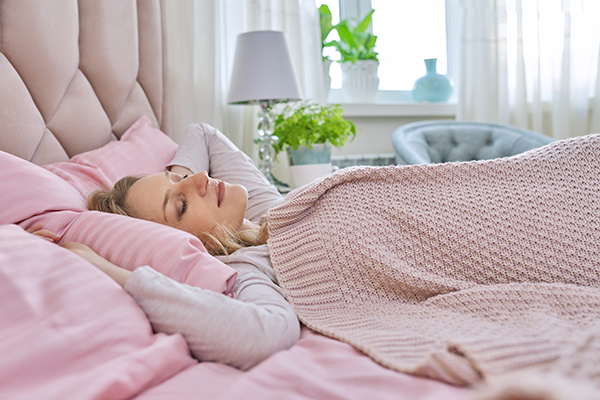
The link between your gut health and sleep is a two-way street. The way you sleep influences how your gut microbes function, and these microbes, in turn, influence your sleep. It’s a cycle where sleep impacts microbes, and microbes impact sleep.
Your body’s internal clock, known as the circadian rhythm, is tuned to light and darkness, regulating various physical and mental processes at different times. This rhythm governs a symphony of bodily functions, responding to the world’s light and ensuring everything within you ticks at the right time.
It’s truly mind-boggling how your gut microbes operate in sync with a clock, each with its tasks during the day and night. But here’s the kicker – it’s all tied to your body’s clock. If your sleep routine goes haywire, disrupting your precious microbial community, blame it on your irregular hours!
When sleep troubles or erratic schedules throw off your body clock balance, it throws the microbe party in your gut into chaos. These little bacteria have their day-night duties, and they can also nudge your body clock around (they’re pretty clever, huh?). Think of them working shifts, like clocking in and out – when you hit the sack, it’s their cue to swap shifts.
Now, imagine if you never had a clue when your day started or ended – absolute chaos, right? That’s the confusion your gut microbes face with irregular sleep patterns. Some cool studies even suggest that certain species, like Bacteroidetes and Firmicutes, dance to their rhythm, fluctuating in numbers as day turns to night.
Stages of Sleep
Picture your sleep as a movie with different acts. The first part is the non-rapid eye movement (NREM) sleep, split into three stages that pull you deeper into dreamland. Waking up during these stages is like surfacing from a dreamy sea, feeling a tad bewildered.
Then, the show shifts to rapid eye movement (REM) sleep – where dreams take the stage. Each cycle, for a grown-up, runs for about 1.5 hours. To really hit that refresh button, you need to journey through all four stages, ideally repeating this magical sleep journey 5-6 times a night.
Your body cues you to go back to sleep after around fifteen hours of waking time.
What is your Ideal Sleep Requirement?
The sleep rulebook suggests that folks between the age of 18-65 should aim for a cozy 7-9 hours every day. The truth is, what you need might not be the same as what your pal needs.
And here’s the kicker: it’s not just about the hours. You could clock in 7-9 hours, but if it’s like a Netflix show with constant pauses, your body might not catch the full refreshing sleep waves it needs.
Nurturing a Restful Sleep Routine
It’s a give-and-take game between you and your gut buddies. To keep your microbes happy and your sleep top-notch, here are some golden rules to keep that internal clock ticking smoothly. And the secret ingredient? REGULARITY. Keep that rhythm steady!
Maintain a Schedule
Stick to a rhythmic schedule for your sleep and wake times. Your body loves a good routine to dance to, helping its internal clock groove in harmony.
Maintaining a regular sleep pattern helps you synchronize your body’s internal clock with outside stimuli such as light and dark. This regularity aids in the regulation of hormones that encourage vigilance during the day and drowsiness at night.
Chase the Sun
Catch some natural rays, even if it’s a moody day outside. Regular doses of natural light, especially when you’ve got a marathon of screen time, can kick your alertness up a notch.
A healthy circadian rhythm is mostly dependent on daylight exposure during the day. Exposure to sunlight increases alertness and enhances the quality of your sleep by suppressing the sleep hormone melatonin. Spending time outside is good since natural light is far brighter than interior lighting, even on gloomy days.
Sweat It Out
Get your groove on, but not too close to bedtime. Exercising in the daytime, not right before bed, is the golden rule for a good night’s sleep.
Frequent exercise improves sleep quality and offers a host of other health advantages. Exercise lowers stress, encourages the production of endorphins, and may help you sleep better at night. But, it’s best to stop working out a few hours before going to bed, as doing out too soon before bed might have the opposite impact.
Bye-bye Stimulants
Let go of coffee and nicotine at least eight hours before bed. Due to its 12-hour half-life, caffeine is best used in the morning. Coffee and other teas contain caffeine, a stimulant that can disrupt sleep.
Caffeine should be avoided in the evenings because of its long-lasting effects. Another stimulant included in tobacco products, nicotine, can also cause sleep disturbances. Better sleep quality is supported when you give your body enough time before bed to metabolize and get rid of these chemicals.
Balance Your Plate
Don’t hit the sack with a growling stomach or a water tank for a bladder. A balanced appetite is the key to restful sleep. A healthy diet is essential for good general health, which includes restful sleep.
It might be unpleasant and interfere with sleep to go to bed hungry or with a very full stomach. Balanced blood sugar levels are maintained by eating a balanced meal that contains a variety of carbs, proteins, and healthy fats. This promotes better sleep.
Screen Break
Electronic gadgets such as laptops, tablets, and phones produce blue light, which can disrupt melatonin synthesis and make it more difficult to fall asleep. Your body may be told it’s time to wind down and get ready for sleep by developing a pre-sleep routine that involves avoiding screens for at least an hour before bed.
Your bedtime stories shouldn’t be on screens. Those glowing devices mess with your sleep hormones, cranking up your alertness and stress levels. Tuck your phone away – in a drawer or a box – and give it a cozy bedtime, too.
Alcohol Alert
Sure, it might seem like a relaxing nightcap, but alcohol can seriously crash the sleep party. It interferes with how well you sleep and how smoothly your sleep cycles go. Although alcohol may make you feel sleepy at first, it might interfere with sleep throughout the later phases of the night, making your sleep less pleasant.
Alcohol disrupts the regular sleep-wake cycle, shortening the duration of the rejuvenating rapid eye movement (REM) stage of sleep. It is best to limit alcohol consumption, particularly right before bed, in order to promote higher-quality sleep.
References
Li, Y., Hao, Y., Fan, F., & Zhang, B. (2018). The Role of Microbiome in Insomnia, Circadian Disturbance and Depression. Frontiers in psychiatry, 9, 669. https://doi.org/10.3389/fpsyt.2018.00669
Liang, X., Bushman, F. D., & FitzGerald, G. A. (2015). Rhythmicity of the intestinal microbiota is regulated by gender and the host circadian clock. Proceedings of the National Academy of Sciences of the United States of America, 112(33), 10479–10484. https://doi.org/10.1073/pnas.1501305112
Liu, B., Lin, W., Chen, S., Xiang, T., Yang, Y., Yin, Y., Xu, G., Liu, Z., Liu, L., Pan, J., & Xie, L. (2019). Gut Microbiota as an Objective Measurement for Auxiliary Diagnosis of Insomnia Disorder. Frontiers in microbiology, 10, 1770. https://doi.org/10.3389/fmicb.2019.01770
Smith, R. P., Easson, C., Lyle, S. M., Kapoor, R., Donnelly, C. P., Davidson, E. J., Parikh, E., Lopez, J. V., & Tartar, J. L. (2019). Gut microbiome diversity is associated with sleep physiology in humans. PloS one, 14(10), e0222394. https://doi.org/10.1371/journal.pone.0222394



